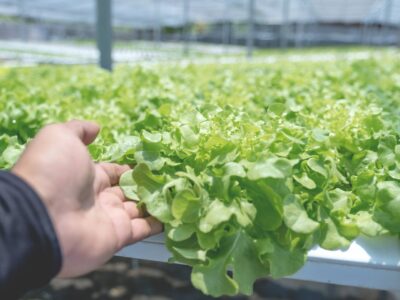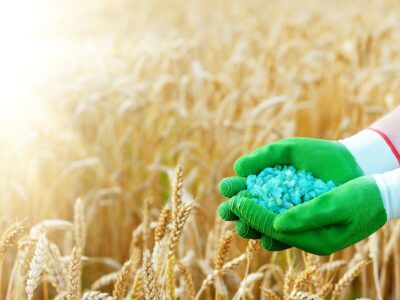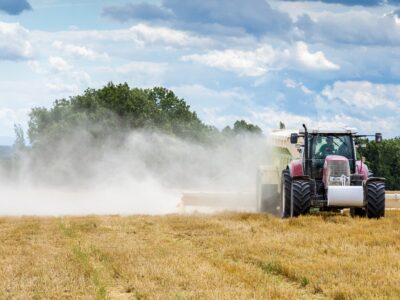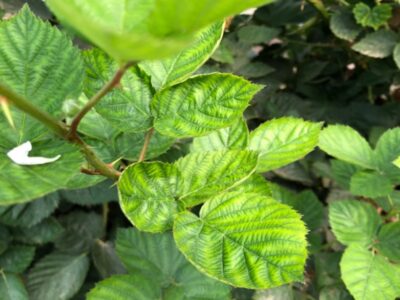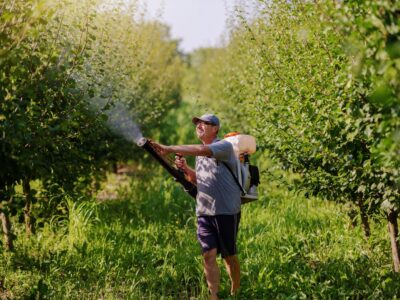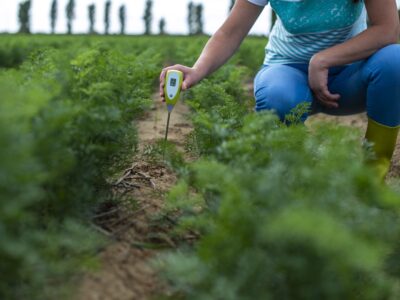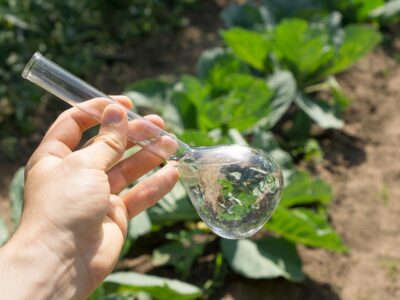Hydroponic systems
Hydroponics is a growing method in which plants are grown in a mineral nutrient solution, with or without the use of a... Read More
Slow and controlled-release fertilizers
Slow-release (SRF) and controlled-release fertilizers (CRF) are compounds designed to supply the crop with nutrients, in a rate that meets its nutrient... Read More
Understanding the units on the soil test report
Soil labs may report soil test results in different units. Often, growers may find this confusing, as their interpretation criteria they have... Read More
How to raise soil pH
Soil acidity is a major cause of reduced yields. Toxicity of micronutrients such as manganese, iron and aluminum may occur, while nutrients... Read More
Iron in plants
Iron is required for the biosynthesis of the chlorophyll molecule and functions as an electron carrier in the respiration and photosynthesis reactions.... Read More
Foliar feeding
Foliar fertilization, also referred to as foliar feeding, is the application of plant nutrients directly to the foliage of the plant by... Read More
Soil pH and acidity
The degree of soil acidity or alkalinity is expressed in pH units. Soil pH affects many processes in soils, including nutrient availability,... Read More
Water Alkalinity
Alkalinity is the ability of the water to neutralize acidity. It refers to the presence of carbonates (CO32-), bicarbonates (HCO3–) and hydroxides... Read More
Silicon in plants
After oxygen, silicon (Si) is the second most abundant element in earth’s crust and is a constituent of most minerals. In soil... Read More
Water disinfection
Water disinfection refers to the inactivation of microorganisms that are pathogenic to humans, animals or plants. Inactivation involves destroying essential structures or... Read More



